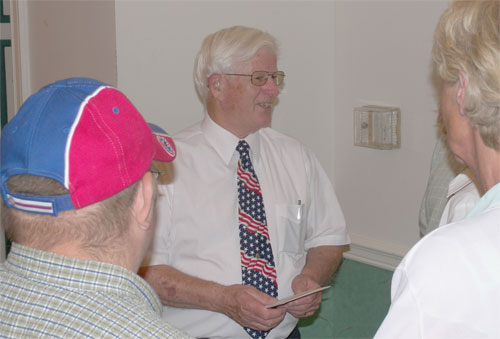July 12, 2006
|
Years ago, Denny Miller, Bob Bruce and I traveled together to attend seminary at Evangelical School of Theology in Myerstown, Pa. Denny and Bob would pick me up along the way and from my home we would alternate driving so we shared the gas expense. It became apparent after a while that there was a clear difference in how quickly we arrived at the school depending on who was driving. I won’t elaborate the difference, but it was clear. Keep that thought in mind.
Now picture your church as a car. There are four people, or entities, in the car. One is vision. One is relationships. One is management. And the final one is programs. There are two main drivers in the car: vision and management. The progression of the journey will be dependent upon who is driving.
When vision is driving the church, relationships are up front riding shotgun and they work closely together. Management and programs are along for the ride but the focus is on how vision is setting the pace and relationships assist the vision. It is exciting, focused, fun, and enjoyable. The journey “feels” exciting and breeds anticipation. You always wonder what the Lord is going to bring around the corner.
But when ministry in a church gets sidetracked, and vision is not clearly communicated or existent, suddenly management moves into the driver’s seat and programs hop up front with it. The high priority becomes preserving what is as opposed to seeking and driving toward what God desires. Policies, procedures, processes and programs become the focal point now. Vision sinks into the background and relationships along with it. The atmosphere becomes strained, deliberate, slow, and discouraging. The machine may even seem to be running well, but the vehicle is slowly moving nowhere.
This can be further defined using two other words: fruitfulness and faithfulness. We can be faithful to having the same few people attend, giving money, and showing some level of care to each other and never be fruitful at all. We are simply “managing” those who are already there. Our focus is inward. And there is no fruit.
But Jesus in John 15 said that we would (and should) produce lasting fruit. Fruitfulness is reproduction. Reproduction is seeing new people come to know Christ and eventually assisting in multiplying new congregations. Faithfulness is important and necessary. But faithfulness without fruitfulness is death.
So who is driving your church? Is a clear, outward-focused vision driving, enhancing and encouraging growing relationships? Or is the major focus managing and programming your church, with vision and relationship taking a back seat?
Whoever is driving will determine where, how and when you will arrive at a destination. They will also determine what your destination is. There is a way that seems right to a man, but it leads to death.

